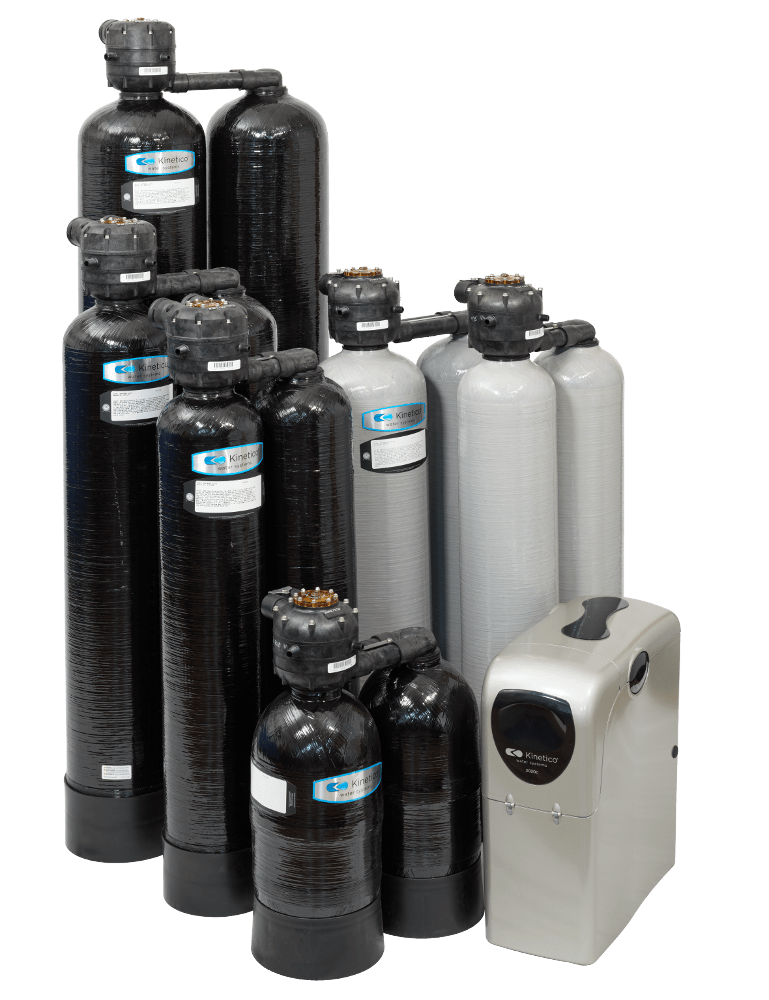
Comparing Electric and Non-Electric Water Softeners
Water softener systems are devices used to soften home or business hard water supplies. The process of softening water aims to remove magnesium, calcium and other unwanted minerals from hard water through a process called ion exchange. Softening water has many benefits as well as cost savings including preventing limescale buildup on water-using household appliances and water heaters, improved taste and smell, less water scale buildup on faucets, sinks, and glassware, and it’s better for hair and skin, to just name a few.
Once you’ve determined that your home needs a water softener system, choosing the right system for your needs and budget can quickly become overwhelming. With so many different systems on the market, how do you know which is the right one for your water? Should you go with an electric or non-electric water softener? To help navigate you through this process, we’ve broken down the difference between these two systems. However, we always suggest scheduling a free in-home water test before making any purchase as doing so will help you get a better understanding of exactly what is present in your home’s water.
What are Electric Water Softeners?
Electric water softener systems are the original water softener system which utilize an electric timer to determine when to regenerate the resin bed inside the tank. Therefore, at a set time every day, the timer activates the water softener process by flushing the resin bed with water and salt to initiate the process of softening the water.
Since the cleansing of the resin bed is controlled electrically, there may be times where the resin bed is cleansed when it doesn’t need to be. In addition, unexpected changes such as excessive water usage or power failures can result in a lapse of conditioned water. However, some updated systems have been developed to overcome these challenges by initiating the softening process more often, which also results in greater usage of salt, water and electricity.
What are Non-Electric Water Softeners?

The Difference Between Electric Water Softeners and Non-Electric Water Softeners
Both electric and non-electric water softeners ultimately deliver very similar results for softened water which prevents costly buildup on water-using appliances, eliminates white scale buildup on sinks, fixtures, and glassware, is less harsh on skin, hair, and laundry, and has an overall clean, fresh taste. However, there are significant differences between the two systems. The biggest difference is the fact that electric softeners work on an electric timer while Kinetico non-electric systems work on a meter that turns as the water flows through it. By utilizing two tanks conjoined by one module, Kinetico non-electric softener systems automatically regulate brining, backwashing, rinsing and shifting from one tank to the other only when enough water has passed through to deem it necessary to trigger more efficient cleaning. The process of the non-electric system reduces the amount waste water, salt, and electricity, which will ultimately save money.
With electric systems, the possibility of electric shock is always a risk. In addition, the electrical components of these systems can be prone to malfunction as they are frequently exposed to damp, salty environments. Since Kinetico Water Softeners do not use electricity, the possibility of electrical shock is completely eliminated. Kinetico systems are in a league of their own as they are virtually trouble-free systems that require minimal maintenance while providing an unlimited amount of soft, clean water. With Kinetico non-electric water softener systems, guest buttons and manual regeneration methods are not necessary, and they don’t need to be disconnected during vacations or periods in which water won’t be used.
What Kind of Water Softener System is Right for Your Home?
Nearly 85% of all homes in America have hard water. In order to determine if your home’s water is hard and what water softener system is the best solution, an accurate water test is critical to ensure that your purchase will provide the best results without overspending. At Clearwater Systems, we are proud to offer free in-home water testing to help you determine which system is right for your home’s specific needs. Contact us today to schedule your testing!



